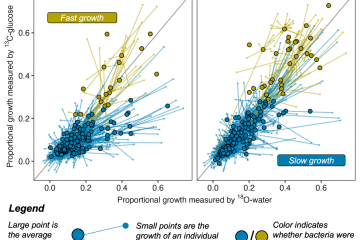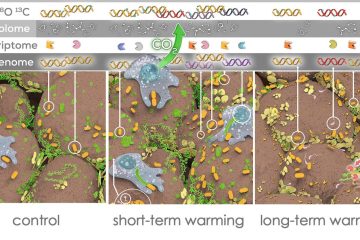Using metabolic tracer techniques to assess the impact of tillage and straw management on microbial carbon use efficiency in soil
Tillage practices and straw management can affect soil microbial activities with consequences for soil organic carbon (C) dynamics. Microorganisms metabolize soil organic C and in doing so gain energy and building blocks for biosynthesis, and release CO2 to the atmosphere. Insight into the response of microbial metabolic processes and C use efficiency (CUE; microbial C produced per substrate C utilized) to management practices may therefore help to predict long term changes in soil C stocks. In this study, we assessed the effects of reduced (RT) and conventional tillage (CT) on the microbial central C metabolic network, using soil samples from a 12-year-old field experiment in an Irish winter wheat cropping system. Straw was removed from half of the RT and CT plots after harvest or incorporated into the soil in the other half, resulting in four treatment combinations. We added 1-13C and 2,3-13C pyruvate and 1-13C and U-13C glucose as metabolic tracer isotopomers to composite soil samples taken at two depths (0–15 cm and 15–30 cm) from each of the treatments and used the rate of position-specific respired 13CO2 to parameterize a metabolic model. Model outcomes were then used to calculate CUE of the microbial community. Whereas the composite samples differed in CUE, the changes were small, with values ranging between 0.757 and 0.783 across treatments and soil depth. Increases in CUE were associated with a reduced tricarboxylic acid cycle and reductive pentose phosphate pathway activity and increased consumption of metabolic intermediates for biosynthesis. Our results suggest that RT and straw incorporation do not substantially affect CUE.


